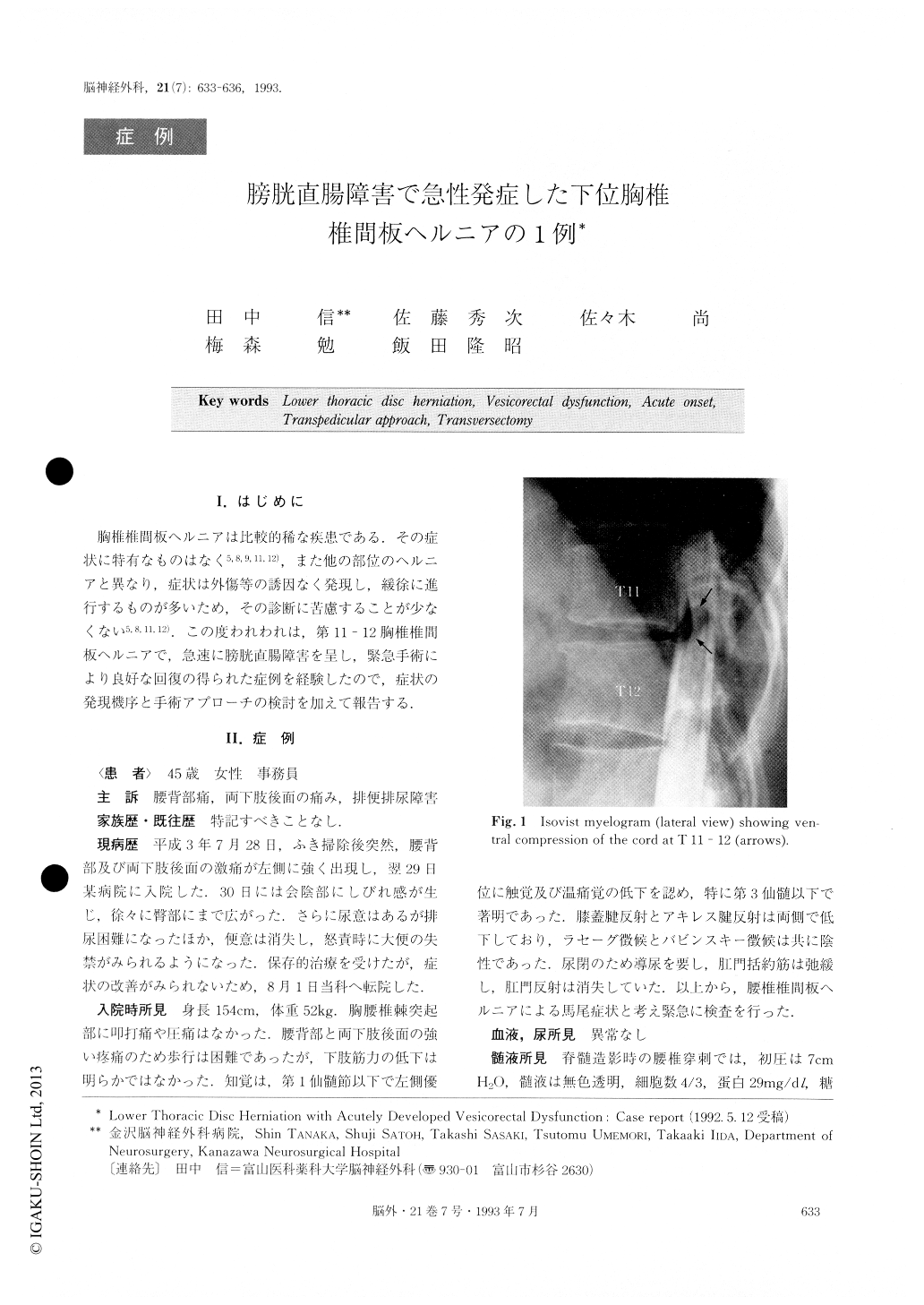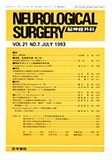Japanese
English
- 有料閲覧
- Abstract 文献概要
- 1ページ目 Look Inside
I.はじめに
胸椎椎間板ヘルニアは比較的稀な疾患である.その症状に特有なものはなく5,8,9,11,12),また他の部位のヘルニアと異なり,症状は外傷等の誘因なく発現し,緩徐に進行するものが多いため,その診断に苦慮することが少なくない5,8,11,12).この度われわれは,第11-12胸椎椎間板ヘルニアで,急速に膀胱直腸障害を呈し,緊急手術により良好な回復の得られた症例を経験したので,症状の発現機序と手術アプローチの検討を加えて報告する.
Thoracic disc herniation is a rare and slowly progres-sive disease which most commonly occurs at the lower thoracic spine without any preceding trauma. We re-ported a case with acutely developed vesicorectal dys-function clue to a ruptured disc at Th 11 - 12. This symp-tom disappeared soon after disc removal via the trans-pedicular approach combined with transversectomy.
This 45-year-old woman suddenly suffered, without previous trauma, from severe back pain radiating clown to the posterior thighs. Since difficulty in urination and defecatory incontinence succeeded two days later, she was transferred to our hospital. Neurological examina-tion on admission revealed anesthesia below Si, hypoto-nic bladder with almost perfectly preserved urinary sensation, complete lack of anal reflex, and only weak motor function in the lower extremities. Both knee and ankle jerks were diminished bilaterally. A herniated disc was initially suspected at C5 - SI on the MRI, but denied by both myelography and CT myelography. These stu-dies showed a disc hernia compressing the cord at Tit 11 -12 on the left side. Since the hernia was located centro-laterally, we employed the transpedicular approach. To make removal of the more centrally located hernia easier, we further added transversectomy of the twelfth vertebra. This hernia was successfully removed under the operating microscope without further damage to the cord being incurred. We did not perform any in-strumental fixation, because we thought preservation of the rib and costvertebral joint could contribute to the sta-bility of the spine. Her vesicorectal symptom subsided immediately after the operation. She was free of any symptoms except for the remaining mild perianal numb-ness a year and seven months postoperatively.
We speculated that vesicorectal impairment was caused by acute compression of the descending motor tract from the pontine micturition center, not by direct compression of the comis medullaris, thus sparing the afferent sensory tract from the bladder. The transpeclicu-lar approach combined with transversectomy seemed to be useful for a centrolaterally located thoracic disc hernia.

Copyright © 1993, Igaku-Shoin Ltd. All rights reserved.


